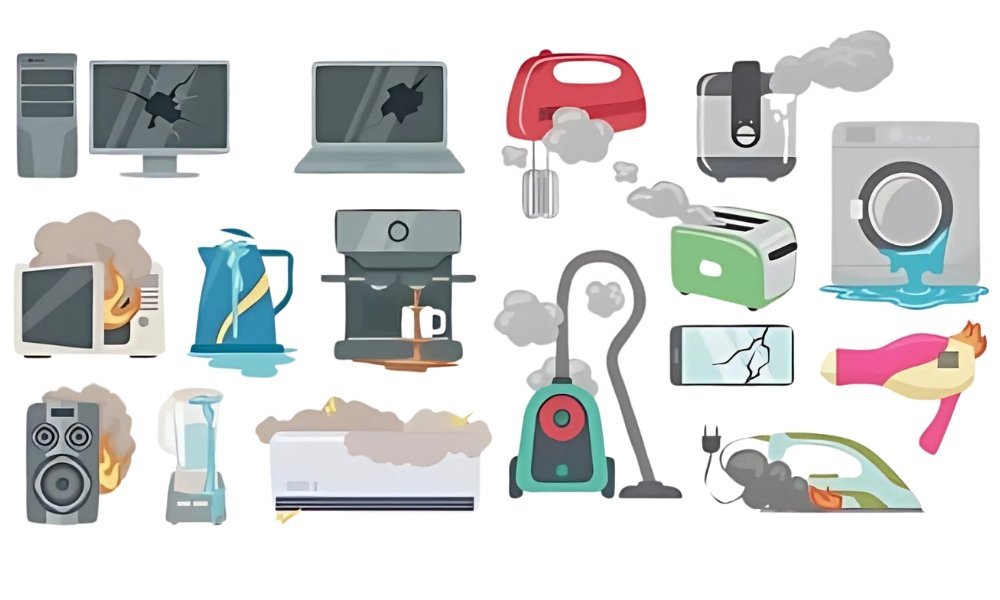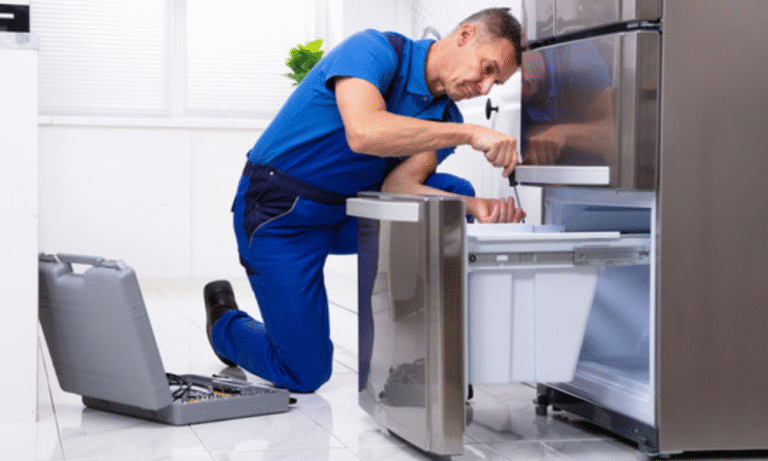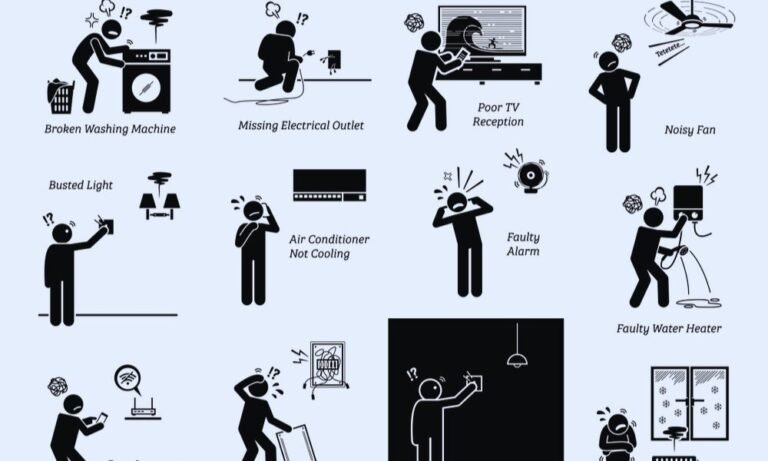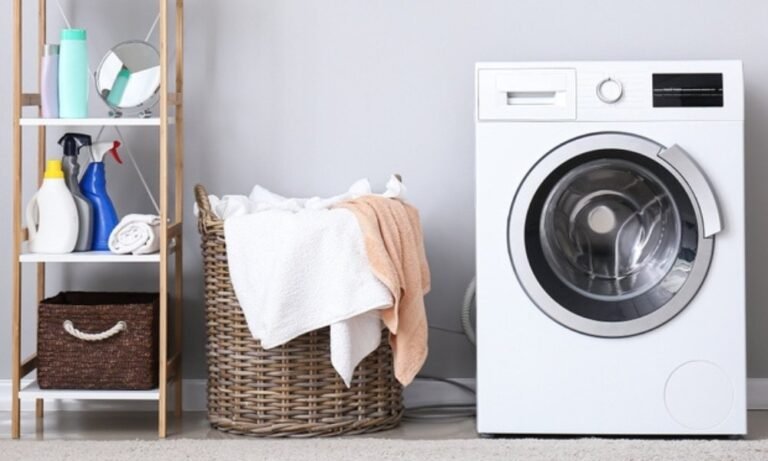Estimated reading time: 5 minutes
Appliances make life easier—until they don’t. When your fridge stops cooling or your washing machine refuses to spin, frustration quickly sets in. As someone who’s spent years diagnosing and fixing appliances, I’ve seen firsthand how most issues stem from simple maintenance mistakes or avoidable wear and tear.
The good news? Many of these common problems can be prevented or fixed without breaking the bank. In this guide, I’ll break down some of the most frequent appliance headaches, explain why they happen, and share proven ways to keep your appliances running smoothly.
What You’ll Learn in This Guide:
Why your refrigerator might stop cooling—and how to prevent it
How to avoid washing machine drainage issues
What to do when your oven isn’t heating evenly
Why your dryer might not be drying clothes properly
Simple maintenance tips that save money on repairs
Let’s dive in.
Refrigerator Not Cooling Properly
Your fridge is one of the hardest-working appliances in your home. It runs 24/7, keeping food fresh. But when it starts acting up, things can go bad—literally.
Why It Happens:
- Dirty condenser coils restrict airflow
- Blocked air vents prevent proper cooling
- A failing thermostat throws off temperature control
How to Avoid It:
Clean the coils at least twice a year—dust buildup forces your fridge to work harder
Don’t block air vents inside the fridge or freezer
Check the door seal—if it’s loose, cool air escapes, and your fridge runs nonstop
Related Read: 7 Signs Your Refrigerator Needs Professional Repair Help
Washing Machine Not Draining
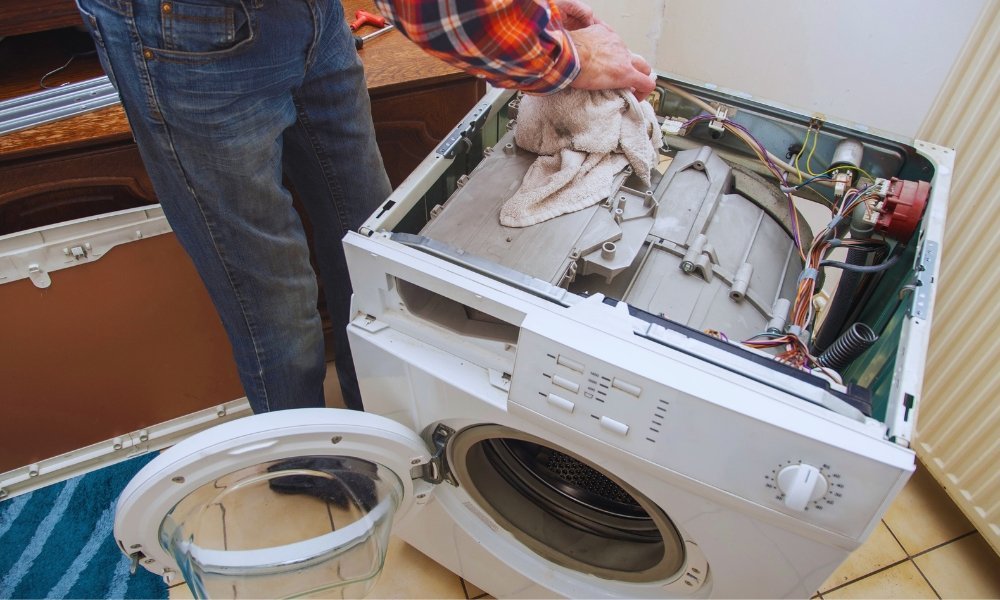
Ever open your washer to find a soaking-wet load of laundry sitting in a pool of water? This issue is more common than you’d think.
Why It Happens:
- Clogged drain hose from lint or small clothing items
- Overloading the drum puts strain on the motor
- Pump failure due to debris buildup
How to Avoid It:
Clean the drain filter regularly—lint and hair love to gather here
Stick to recommended load sizes—stuffing it full shortens its lifespan
Use the right detergent—excess suds can trigger drainage issues
Related Read: How to Extend the Lifespan of Your Washing Machine
Oven Not Heating Evenly
If your cookies bake unevenly or your pizza comes out half-cooked, your oven might not be distributing heat properly.
Why It Happens:
- Broken heating element prevents full heat distribution
- A faulty thermostat leads to incorrect temperature readings
- Blocked vents restrict airflow inside the oven
How to Avoid It:
Use an oven thermometer to check for temperature inconsistencies
Clean the oven regularly—baked-on grease affects heat circulation
Inspect the heating element for visible damage
Dryer Not Drying Clothes Properly
If you have to run your dryer twice to fully dry a load, something’s off. It’s not just annoying—it also wastes energy and wears out clothes faster.
Why It Happens:
- A clogged lint trap restricts airflow
- Blocked dryer vents prevent heat from escaping
- A broken heating element means no hot air
How to Avoid It:
Clean the lint trap after every cycle
Check and clear the vent hose at least every six months
Avoid overloading—too many clothes block heat distribution
Related Read: Energy Efficiency Tips for Maintaining Your Appliances
Dishwasher Leaving Dishes Dirty
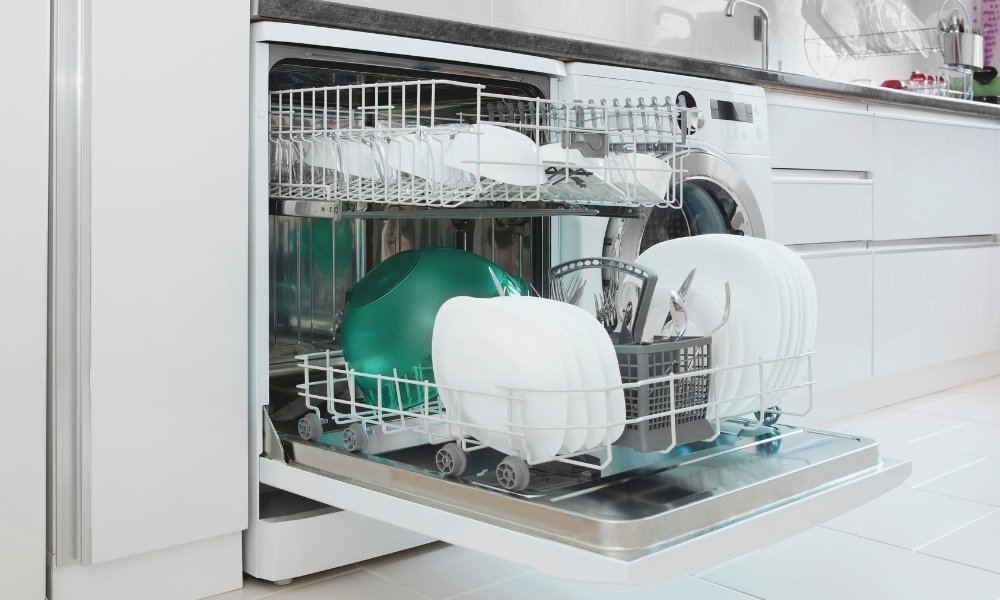
A dishwasher is supposed to save you time, not leave you rewashing dishes by hand. If your plates come out greasy or covered in food bits, there’s a problem.
Why It Happens:
- Clogged spray arms reduce water pressure
- Hard water buildup prevents proper rinsing
- Using the wrong detergent causes residue buildup
How to Avoid It:
Check the spray arms for blockages and clean them regularly
Run a vinegar rinse once a month to remove mineral buildup
Use high-quality detergent—cheap ones often leave residue
When to Call a Professional
While some appliance issues are easy DIY fixes, others require a professional touch. Here are a few red flags that mean it’s time to call in an expert:
Your fridge is making loud, unusual noises—this could mean a failing compressor
Your washing machine shakes violently during spin cycles—this may indicate motor or suspension issues
Your oven smells like burning plastic—a sign of electrical problems
Related Read: DIY or Pro? When to Call an Expert for Appliance Issues
Preventive Maintenance Tips That Save You Money
Staying ahead of appliance problems doesn’t take much effort, but it can save you hundreds (or even thousands) on repairs. Here’s how:
Clean your fridge coils, dryer vents, and dishwasher filter regularly
Use appliances as directed in the user manual—it’s there for a reason
Schedule professional maintenance for high-end or frequently used appliances
Related Read: Why Regular Maintenance Saves Money on Appliance Repairs
Final Thoughts
Appliance problems are frustrating, but most are avoidable with simple maintenance. A little care now can save you money, extend appliance lifespan, and prevent last-minute breakdowns.
If you’re dealing with a stubborn appliance issue, don’t hesitate to reach out to a trusted repair professional. And if you’re in the market for a new appliance, choose quality over price—it pays off in the long run.
Need expert help? Check out this guide on hiring an appliance repair technician.
